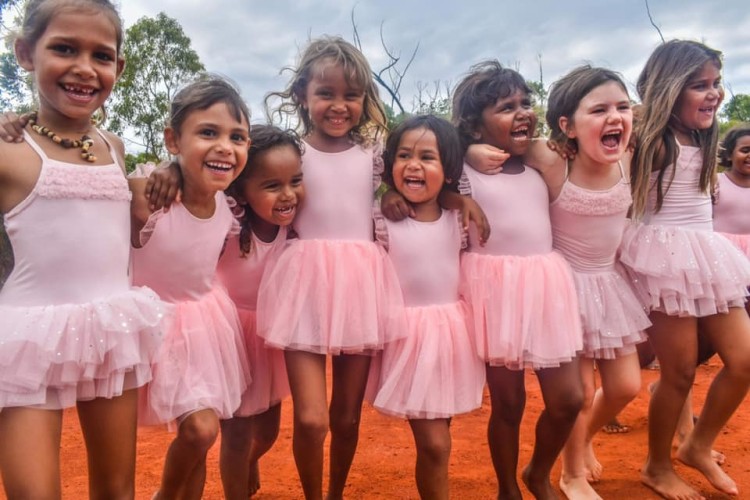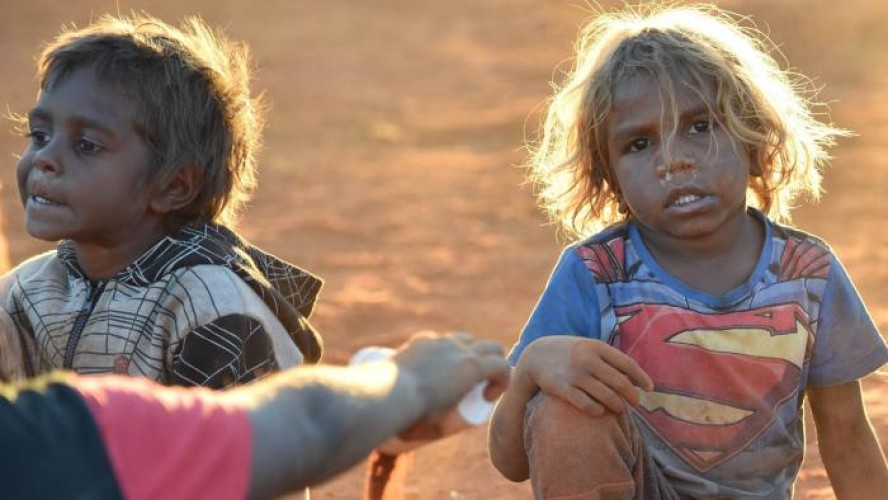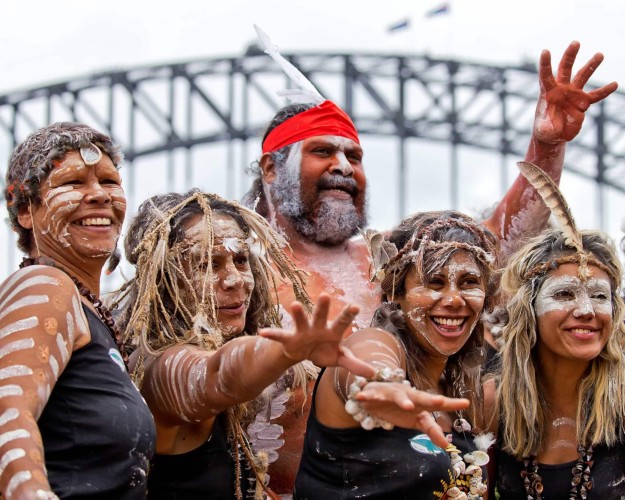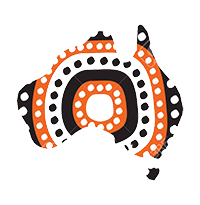They share a strong connection to their land and have developed a rich body of traditional knowledge that enriches us all.
The experience of Indigenous Peoples however, is still in many ways a story of exclusion and maltreatment. The Indigenous of Australia are among the most vulnerable and marginalised peoples.

While there are many recent efforts to promote change, marginalisation is still the continuing reality for many Indigenous People. Indigenous struggles for justice and for preservation and protection of their rights, cultural identity, spirituality, and traditional sustainable lifestyles are fundamental to their human dignity and survival.
The worldviews, spiritualities, cultures and experiences of Indigenous Peoples are distinct. At the heart of their struggles for survival as self-determining people is maintenance of spiritual, cultural, social, economic, and political integrity. Indigenous concerns are therefore central to our mission at LIVE as we seek harmony with our Indigenous brothers and sisters.

Indigenous peoples share legacies of forced removal and relocation from their traditional lands, cultural destruction, discrimination, exclusion from decision-making processes and widespread human rights violations.
The United Nations Declaration on the Rights of Indigenous Peoples, Please MAKE LINK adopted in 2007, was a landmark accomplishment, representing more than 20 years of teamwork and negotiation between indigenous peoples, governments and human rights experts.
While the challenge remains to make its core principles of self-determination; participation in decision-making; respect for and protection of culture; and equality and non-discrimination an everyday reality for indigenous peoples: LIVE aims to help advance this goal by initiating, nurturing, and strengthening Indigenous Peoples’ regional networks Australia wide. Our mission is to build capacities of regional and local leadership and to support grassroots movements for our Indigenous, working on issues of justice, development, land rights, identity and self-determination.
Our Work for Indigenous People targets:
The Australian Human Rights Commission has released a landmark report on Australia's First Nations women and girls, with an ambitious, female-led plan for structural reform.
Wiyi Yani U Thangani—(Women's Voices)—Securing Our Rights, Securing Our Future Report 2020 is the result of consultations with thousands of Aboriginal and Torres Strait Islander women and girls of all ages in remote, very remote, regional and urban communities.

The report calls for the urgent establishment of a National Action Plan, an advisory body and targets and benchmarks for women and girls to lead in all areas of life.
"This report is a call to action. It's a strengths-based message for all Australians to see, to hear, to learn of the remarkable resilience and capabilities of our women and girls, who have the solutions but lack a seat at the table," Commissioner June Oscar said.
"We gave Indigenous women and girls the space to say what they wanted, to share their ideas, without fear or favour. That's exactly what they did," she said.
"My team and I have been moved by the sheer resilience of our First Nations women and girls, who despite ongoing disadvantages across all areas of life, continue to hold their communities and families together."
The report includes key principles, overarching recommendations and a series of priority actions to enable communities to thrive and overcome profound disadvantages.The recommendations include:
They set out key structural reforms to address cross-cutting systemic issues of marginalisation, trauma and intersectional discrimination, and to fundamentally shift how Australian governments engage with First Nations women and girls.
Wiyi Yani U Thangani has been supported by a multi-year partnership with the National Indigenous Australians Agency. It is the first national engagement project of its kind since the Women's Business Report in 1986.
The Commission has also published a community guide to accompany the report.
Date: 10 December 2020
Source: Australian Human Rights Commission

In 2019/20 Mission Australia conducted and produced its fourth National Aboriginal and Torres Strait Islander Youth Report.
This report reflects the voices of today’s Aboriginal and Torres Strait Islander young people and the findings highlight the importance of family, culture and community for Aboriginal and Torres Strait Islander young people.
This powerful advocacy platform highlights the ways we can all work in partnership and learn from each other with common goals of reconciliation and ensuring all Aboriginal and Torres Strait Islander young people can thrive, now and into the future.
Your downloadable pdf (paste into the address bar):
https://www.missionaustralia.com.au/publications/youth-survey/1717-mission-australia-youth-survey-report-2020/file
Australia is incarcerating children as young as 10 years old — breaching international standards — and Indigenous children are the worst affected.

In 2012 the Committee on the Rights of the Child (CRC) said that Australia’s juvenile justice system required substantial reform before it would meet international standards, noting, for example, that children in Australia are held criminally responsible from the age of 10, two years younger than the CRC’s internationally acceptable minimum.
LIVE works to lobby the Australian Government to cooperate with the states and territories and Indigenous organisations to reduce the number of Indigenous youth incarcerated Australia wide.
